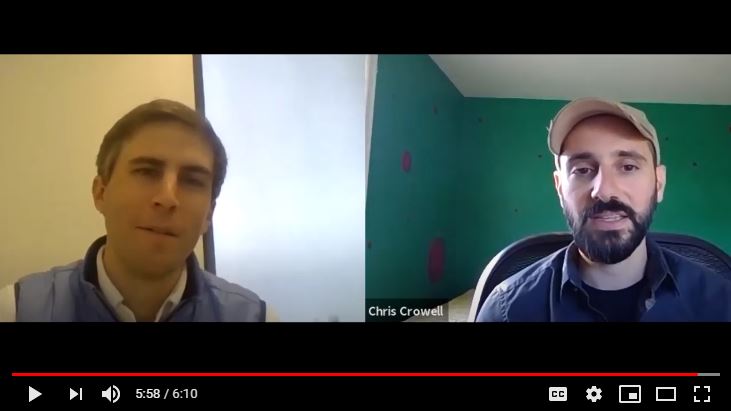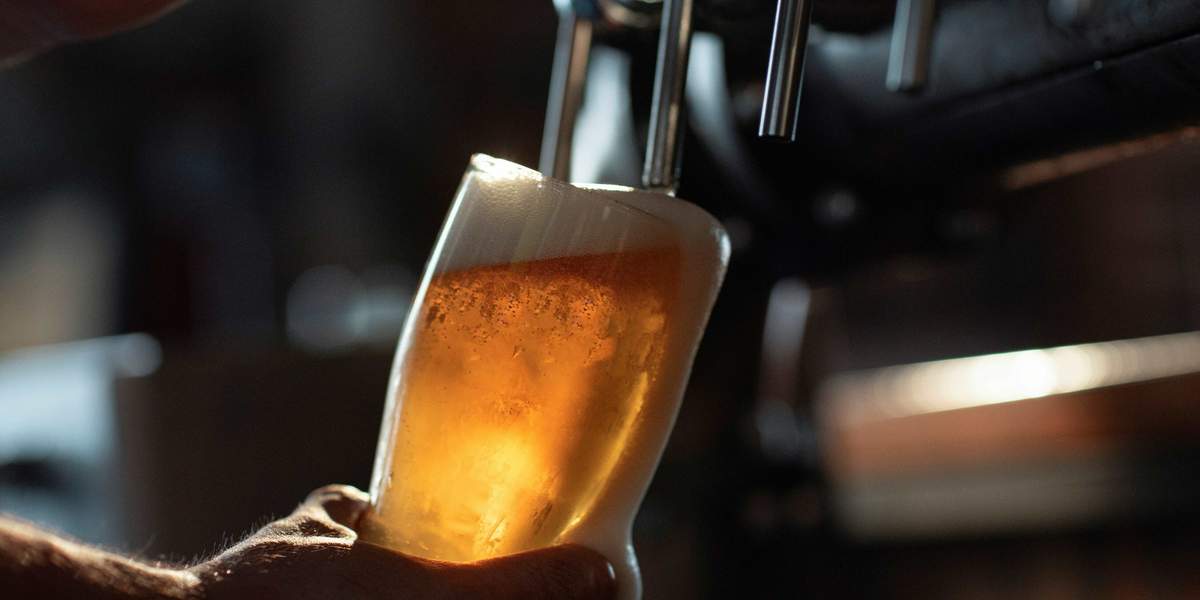
As mentioned earlier in the week, Untappd and parent company Next Glass have made a ton of moves this year to help beer businesses pivot during the pandemic. As part of our discussion with CEO Trace Smith, I wanted to pick his brain about where things might go from here. Here’s that slice of our convo, in which we ask what changes breweries have made during the pandemic will stick around, the possibilities of a new “Roaring ’20s” and what the craft beer business model might look like post-COVID.
CBB: The stuff you’re doing now to address the huge issue of the pandemic and having to change brew business models on the fly, it’s out of necessity right now, but it does feel like the solutions that are happening now are maybe building stronger businesses for the long-term.
Trace: I think businesses are realizing in this industry, whether they’re bars, restaurants, or breweries, that they are more durable with an omni-channel approach. If you were an off premise retailer entering COVID, you’ve done really well through this. If you are a DTC platform you’ve done really well. To the extent that you were only able to, or only interested in participating kind of one channel, the way that COVID cookie crumbled, you are either a huge beneficiary or in a really tough spot when COVID hit. And so, I think the first eight weeks of COVID, there was 10 years worth of e-commerce adoption, right? If you looked at commerce as a percentage of total commerce in this country, and we had as much growth in eight weeks as we did in the prior 10 years.
Do I think all of that is going to stick post COVID? Of course not. Right? But some of it is. I mean, I think about my own household and we weren’t people that did delivery groceries pre-COVID, but my wife has done it a few times and you don’t have to have her become a religious user of these platforms for there to be a meaningful difference. So if you’re a brewery that went to do more shipping or more to-go, maybe now it’s half of your business, but even if it continues to be 10% or 15% of your business, that’s really a growth lever or kind of this module that you’ve been able to tack on to your kind of pre COVID business model that can benefit you in the long run.
CBB: Yeah. I think it’s something like, it takes 15 days for a person to build a new habit if they’re actively trying to do that and you kind of get a new synapse connection in your brain, and this is now part of you. And just accidentally for an entire year, we’ve all built up new habits. And then some of them we’re just going to be cool with keeping around.
Trace: Yeah. I think you hit on something important there, which is ultimately the consumer decides, right? There are a lot more consumers than there are retailers or wholesalers or brokers. And so if the consumers want this stuff to stick, and if I want to, as a consumer, pick up to-go beers and food on my way home from work on a Friday afternoon post COVID, I think the venues are going to have to not necessarily pivot, but continue to offer some of these services to consumers because I think you’re right. I mean, consumers are loving this, right? I mean, if I’m a consumer, I’ve never had more opportunity to interface with my favorite breweries, through more channels than during COVID.
CBB: What is different about the business model of the small taproom brewery in 2022 versus 2019? What used to work that won’t work anymore, and what’s something new that you think will lead to more profitable business?
Trace: I think there are really three things. One, I think we’ve already seen it in our data, on states that have reopened during the summer only to shut down again. I think there’s going to be a massive influx into these venues, people are going to have been cooped up and locked down for a year. They’re not going to have gotten kind of their social juices flowing. And they’re going to want to get out. My view on this is we are going to have a roaring ’20s situation of this century where the patrons are just going to flock to bars and restaurants and breweries, which I’d be shocked if we don’t see it. You’re already seeing in some countries that fought the pandemic more effectively than we did.
I think you’re going to see, and we’ve already seen in the data, a desire to support local. I think our users certainly recognize that these brewers, these bar operator, they live and work and pay taxes on our community and that the way that COVID could be crumbled to my earlier point, they were maybe the hardest hit through this. And I think there is going to be a huge return to supporting local breweries, local establishments.
And then the third thing I think you’re going to see is, it’s kind of a past discussion point, I think you’re going to see consumers that got used to the temperature of the water. And I think there’s going to be a little bit of an Uber effect, that clearly benefits consumers and is tough for regulators to put some of these things back in the hat when a consumer has grown accustomed to performing some of these behaviors over the course of a year, 18 months, and then this stuff’s going to go away and they’re going to say why? This was fine for 18 months and why does this need to go away? It’s one thing for states or municipalities to allow some of this stuff for two weeks and then pull it back. It’s another thing to do it for 18 months and then pull it back. So I think you’re going to see more multi-channel options for on-premise retailers, for brewers and for consumers coming out of COVID, which I think is a good thing.
I was speaking to a brewer about this last week. I said, look I think there’s short-term pain for long-term gain. I think that this has clearly been very difficult for a lot of constituents in our industry, but I think the rapid adoption of technology that this has forced, the using of certain regulatory factors, I think it only stands to benefit these venues over the next decade, but it certainly has been an exercise in kind of collective breath-holding here through COVID. And so I think everyone’s ready to exhale.
CBB: Yeah. Totally. Without masks on.
Trace: Exactly.






Leave a Reply
You must be logged in to post a comment.